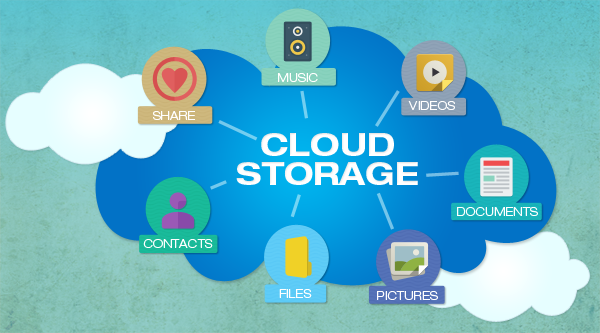A List Of Pros and Cons of Cloud Storage!
The top pros and cons of cloud storage
Pros:
- Storage necessities are rising exponentially and, as a consequence, companies are looking for replacements to customary tape-based solutions. The cloud can offer a cost-effective storing alternative, but it may not be the correct solution for every circumstance. Logically, a global IT solutions and managed facilities supplier, has delivered a list of the top pros and cons to a cloud-based storage solution to help organizations decide whether this cost-effective alternative to tape will work for their specific requirements.
- Offsite Storage
Cloud-based storage is not usually housed on the business’ own sites, making this a pro by providing a second offsite copy of the company’s data; this may eradicate the necessity for a separate service to store backup’s offsite. - Automated Backup
Cloud storage can improve backup computerization by provided that the capacity to make instant offsite copies of a company’s backups. Many leading-edge backup and archival products have been strongly incorporated with cloud-based storage to make backing up to off-site cloud storage very simple and hassle-free. - Lower Cost
The cost can be much less than customary direct-attached or SAN-based storage. This may happen for numerous details. Cloud storage is a traditional Tier 2 or 3 kind of storage providing a lower-cost storage platform. It is often a shared infrastructure, again driving down the base costs. Finally, cloud storage can be consumed on an as-needed basis, allowing end users to only pay for the storage they are actually using while they are using it. - Policy-Based Administration
The day-to-day administration of cloud-based storage is naturally managed by the provider on a policy basis, releasing the end user from this duty. This allows in-house people to set plans for future growth and emphasize their time and energy on IT activities that will give to the company’s competitive benefit in its unique market or industry.
Cons:
While many benefits to the cloud storage exist, there are potential cons that should be examined. Everything has its pros and cons.Some of the most discussed cons within the IT industry include:
- Off-Site Storage
This is on both the pro and the con list. Since the storage of data in the cloud is usually provided off-premise, which means it is outside the business’ straight control, storage clients must rely on the cloud provider to keep data both safe and available, making it serious to choose the right solution provider as a cloud partner from the start. - Slower I/O Responses
Cloud storage is not usually measured a high-performance platform, and transactional systems would normally not be good candidates for cloud storage because of their reply time requirements. The I/O reply time of data stored in the cloud is much slower than direct-attached or SAN-based storage. - Bandwidth Limitations
Many cloud storage options are available with a stated bandwidth grant. Should the business exceed this allowance, substantial charges may apply? On the other hand, some providers, including GWI, provide cloud storage with unlimited bandwidth, so be unquestionable to ask your provider if bandwidth will be measured. Even with bandwidth charges, many industry specialists still believe that this platform deals cost savings over more customary storage choices. - Data Security
As data is stored distantly, some worries surround the probability of data commingling with other organizations. And, some professionals are concerned about the general security and privacy of information stored in these remote locations. To alleviate these concerns, choose a partner that encrypts your data.
Despite concerns surrounding cloud storage, most businesses view the cost savings, disaster recovery security and accessibility benefits as more significant than the associated risks.
Author Bio:
Margaret Jones is an IT Manager and a Blogger at UK Assignment Creator. Her blogs are revolved around the topics related to IT industry, business technology, and business trends. She is an amateur photographer and loves clicking the natural settings.

















